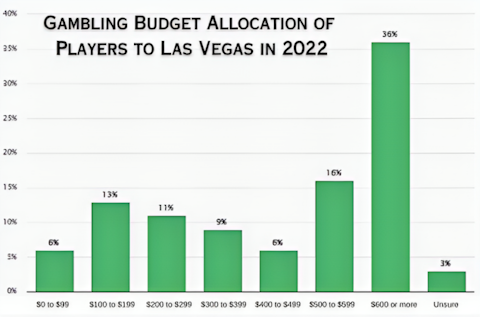Success does not only require perseverance, hard work, and a little bit of luck. Effective financial planning with proper budget management also stands as an important element in achieving success in many fields, including gambling. Whether you engage in casino games or sports betting, making a strict budget ensures favorable outcomes over the long term, but obviously, many novice players may overlook this crucial factor.
Budget Management
Effective management of your gambling budget begins with determining the amount you intend to allocate. For casino games, always avoid doing annual budgeting. Instead, you can establish a budget tailored to your weekly or monthly gambling activities. If your casino visits are not too often, consider setting a budget for a single night. It’s important to emphasize that the money designated for gambling should not jeopardize your essential expenses like rent, food, and mortgage. Always remember to prioritize financial responsibilities over gambling expenditures.

Setting Your “Take-Profit” and “Stop-Loss” Points
After determining your budget, you need to set your limits or boundaries. Setting boundaries for both winnings and losses is a great strategy. You need to define clear entry and exit points for your bets, as well as a clear take-profit and stop-loss points. For instance, if you are playing the casino with a monthly gambling budget, it is advisable to wager only 5-10% of your total budget. Exiting when you achieve a 15-25% profit and patiently awaiting the next opportunity is a wise decision. Similarly, if your losses reach 10-15% of your budget, it is crucial to stop gambling and take the loss, rather than to continue and incur greater losses. Emotions tied to wins and losses can cloud decision-making, potentially leading to the depletion of your budget if you surpass these predefined limits.
Never Put All Your Eggs in 1 Basket. Diversify!
Strategically allocating your budget across various bets can contribute significantly to long-term success in gambling, enabling you to extend your playing time. For instance, if you have a $1000 budget for a casino session, consider distributing it among different bets. This distribution can be tailored to specific games like slots and poker, or you can diversify it by allocating different amounts to individual bets. Instead of placing 25 bets at $40 each, opt for smaller betting amounts. Always remember to never put all your eggs in 1 basket, meaning, avoid placing your entire budget on a single game. Through the diversification of your budget and bets, you can mitigate risks and ultimately prolong your playing time, enhancing it over an extended duration.
CasinoAlpha announces that using mostly minimum deposit can diminish spending by 67% over the course of 12 months. From over 50 offers tested, the main numbers look like this: the deposit limits are lower than $5, wagering averages at $250, and there are about 42 available games on any given bonus.
Mindfulness Over Bets
There are four dominant human behaviors observed in gambling: fear, hope, desperation, and greed. Hope typically occurs at the beginning of your first game, often accompanied by the phenomenon of “beginner’s luck,” leading to consecutive wins. It is at this juncture that greed can set in, prompting you to increase your bets, sometimes exceeding your budget. In certain instances, following a streak of wins, a reversal of fortune may occur, triggering the emotion of fear. Faced with the concern that your earnings or initial capital may not be redeemed, desperation may take place. Then the desperate attempt to recover losses may lead to overspending, ultimately reaching your rock bottom.
The risk arises when overconfidence tempts you to surpass self-imposed winning limits, potentially jeopardizing your budget management and leading to the loss of accumulated winnings. Similarly, on a challenging day, the inclination may be to bet more to offset losses, surpassing predetermined spending limits. The bottom line is that you must adopt a practical mindset and strictly follow the limits you’ve set, irrespective of your emotional situation.





